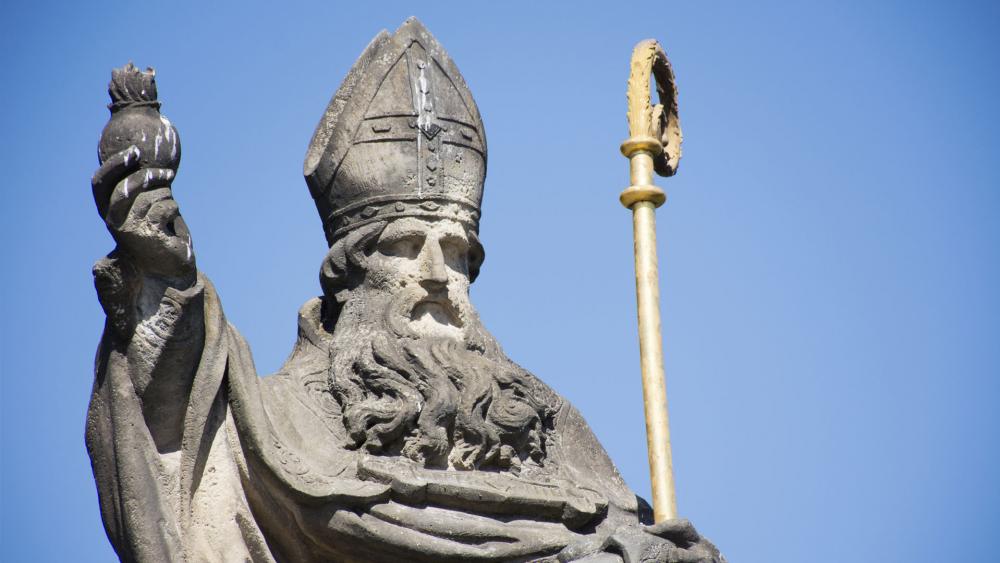Concern for the Future

I laughed out loud when I came across this line from that very work as a young man: “What was God doing before he made heaven and earth? Some say He was building hells for those who think too much and ask such questions, but I don’t believe that.”
It is certainly true that some of us “live in our heads” too much, and that there is a distinct downside to this. In particular, we’ve all had the experience of overthinking a problem, and we’ve all realized at one time or another that what we worry about the most almost never happens, while we’re constantly being bitten in the butt by something totally unexpected and, in fact, unforeseeable.
Here’s something from the Daily Stoic: Humble people worry less than the arrogant. Why is that? Because they aren’t so conceited as to think they have any idea (or control over) what may or may not happen. The poet Rilke put it well: “Life is not even close to being as logically consistent as our worries; it has many more unexpected ideas and many more facts than we do.”
Having said all this, there is most certainly a place for concern for the future in everyone’s life. Believe it or not, there are people who don’t care about the environment because they’re going to be dead by the time things like climate change and ocean acidification really start making life miserable.
There are actually a range of different flavors of this belief, and justifications for it. I’m reminded of my conversation a few years ago with Jerry Taylor, a spokesperson for the Libertarian Cato Institute as part of my third book: Renewable Energy: Following the Money. Here are the highlights of his thoughts, together with my reactions:
Jerry believes that our civilization is not duty-bound to take preventative measures against climate change because we don’t have adequate visibility into the future. This does not hold water with me. Yes, we could be saved by a great number of things, e.g., a new technology or some unforeseeable event in the cosmos. But society’s depending on the unknown to halt the destruction of our environment is not sane, responsible behavior.
He also argues that, since the greatest damage from climate change will happen many decades hence, our imperative to mitigate that damage itself comes decades hence. This is a similarly unsupportable position; it has no more validity than an oncologist who discovers a small tumor on my lung but does not advise me to stop smoking, since the greatest part of the damage has not yet materialized.
So yes, let’s stay concerned; let’s worry, but in the most constructive way possible.

Craig,
” let’s stay concerned; let’s worry, but in the most constructive way possible”.
At last something we can agree upon! The question is, how to define “constructive?”.
Without pragmatic objectivity based on fact and science, objectivity becomes lost in a sea of “belief” and ideology.
Josef Joffe a Fellow at Stanford’s Hoover Institution, just published an insightful article in Commentary Magazine.
The article explains how a new “faith” has emerged among Climate activists and how “climate Science ” has abandoned scientific principles to become a new religion or cult.
The article entitled the ‘Religion of Climatism’, is very revealing and provides startling insight into the dangers of merging religious practices with scientific advocacy.
https://www.commentarymagazine.com/articles/the-religion-of-climatism/
It’s worth reading for anyone who still retains and open or inquiring mind.
To quote an excerpt:
“The latest IPCC Report (2018), authored by luminaries in the field, looks like the very model of scientific inquiry. It is 618 pages long and packed with graphs, math, and time series. Given the dense academic language, it is doubtful whether anybody, apart from the proofreaders has read the tome in its entirety.
Nor is it necessary to run the whole course in order to get at a basic truth—a truth regularly ignored by the media, with its penchant for turning “might be” into “is” and “could happen” into “will happen.” For our purpose, it is enough to read the 24 pages of the “Summary for Policy Makers.”
It is preceded by a motto taken from the beloved French children’s book author Antoine de St. Exupéry that gives the game away: The report is about salvation but written in the language of science. The quote reads: “As for the future, the task is not to foresee, but to enable it.” “